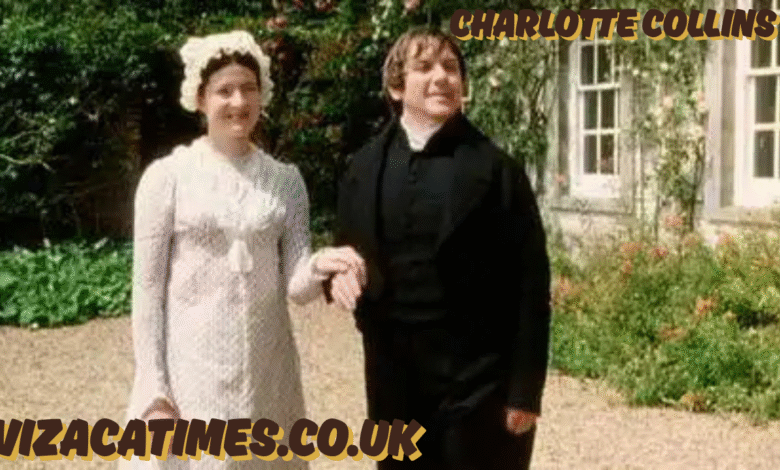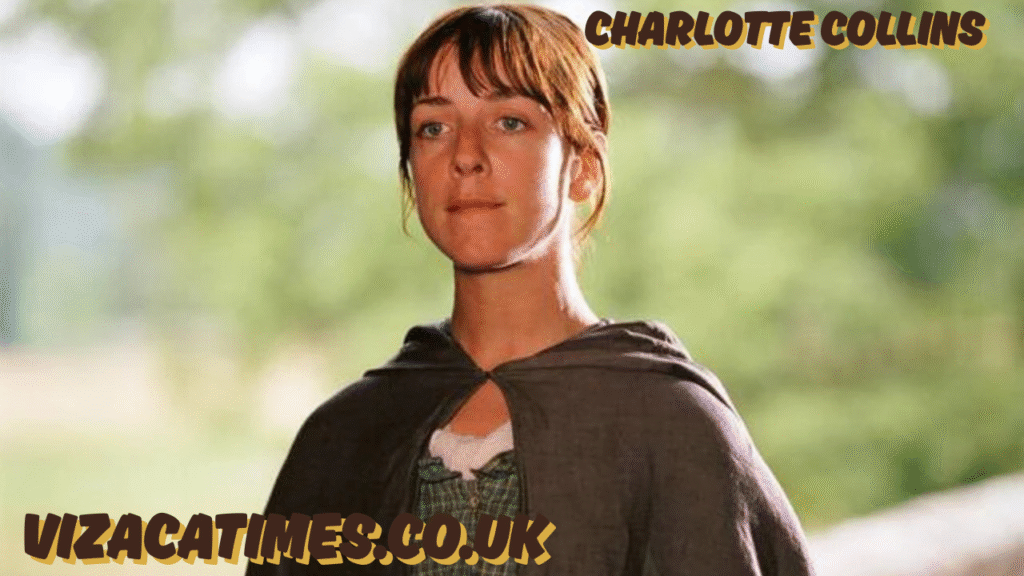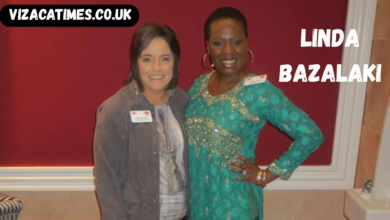Charlotte Collins: Fiction, Reality, and Legacy??

Introduction to Charlotte Collins: More Than a Name??
The name Charlotte Collins carries with it an echo of historical depth, literary recognition, and even modern-day intrigue. Whether you’re drawn to this name due to its connection with classic literature, curious about real-life figures who share it, or exploring the meaning and symbolism behind it, “Charlotte Collins” represents more than just a person — it’s a tapestry of culture, character, and context.
Charlotte Collins in Literature: The Jane Austen Connection

Perhaps the most notable “Charlotte Collins” appears in Pride and Prejudice, Jane Austen’s beloved novel. Formerly Charlotte Lucas, this character embodies a pragmatic and controversial decision of her era — marrying Mr. Collins not for love, but for security and social stability. In Austen’s world, Charlotte Collins symbolizes the societal pressure on women to secure their futures through marriage.
Her character invites both admiration and debate:
- Admiration, for her clear-sighted realism.
- Debate, for settling for a man she does not love, thus giving in to the era’s patriarchal structure.
Charlotte’s storyline continues to spark discussion in literary circles, feminist critiques, and historical analyses. She is not merely a side character but a powerful representation of 19th-century societal norms.
Real-Life Figures Named Charlotte Collins

Beyond fiction, “Charlotte Collins” is a name carried by several real individuals who have contributed to fields such as journalism, arts, and academia. While not always globally recognized, many Charlottes have left quiet but impactful legacies in:
- Literary translation and publishing
- Environmental reporting
- Art curation and gallery work
These contemporary figures represent the evolution of the name — from being emblematic of duty and social compromise to becoming associated with intellectual pursuit and creative independence.
Charlotte Collins?? A Symbol of the Choices Women Face
The enduring appeal of Charlotte Collins as a literary figure is how she frames a timeless dilemma: love versus survival. Women for centuries have had to make tough decisions in balancing societal expectations, personal happiness, and economic survival. The character of Charlotte Collins becomes more than just Mr. Collins’ wife — she is the lens through which we analyze:
- Agency versus conformity
- Marriage as a transaction
- Female empowerment in constrained systems
Charlotte represents a quiet kind of strength. She might not rebel or revolutionize, but she survives — with dignity and strategy. For many women even today, especially in traditional or patriarchal societies, her decision remains relatable.
The Psychological Lens: Who Is Charlotte Collins??
Delving deeper, “Charlotte Collins” can be viewed through a psychological and symbolic lens. Consider:
- Charlotte, derived from the French “petite” or “free woman.”
- Collins, a common English surname, yet stiff and conventional — mirroring Mr. Collins himself.
Together, the name forms a fascinating juxtaposition — a “free woman” bound by a conventional name and life. Symbolically, this encapsulates her character: someone who has inner autonomy but is socially restricted. This duality makes her a deeply human character and a symbol for modern women who balance internal aspirations with external expectations.
Charlotte Collins and the Modern Parallel
In today’s world, many women still resonate with the character of Charlotte Collins. Whether choosing a stable career over a passionate but risky pursuit, or navigating the pressures of family expectations in personal relationships, Charlotte’s dilemma is universal.
Some modern parallels include:
- Women in arranged marriages who choose stability.
- Professionals who compromise dreams for financial security.
- Individuals who suppress passion for practicality.
Charlotte’s story becomes not one of compromise, but of strategic living. She may not be romanticized like Elizabeth Bennet, but she is grounded, intelligent, and self-aware — qualities that matter deeply in the real world.
Interpretations Through Media and Adaptations
Various adaptations of Pride and Prejudice have portrayed Charlotte Collins differently:
- In BBC’s 1995 version, Charlotte is practical yet not devoid of emotion.
- In 2005’s film, she appears more resigned and pitiful.
Each adaptation sheds new light on her choices and emotional depth, inviting viewers to question their judgments. Was she wrong? Or simply surviving?
These portrayals have influenced how modern audiences interpret the “Charlotte Collins” archetype — not as a sellout to the system but as someone who carves a livable space within it.
Charlotte Collins?? The Name That Keeps Reappearing
Interestingly, the name Charlotte Collins continues to appear in various domains:
- Academic authors
- Creative professionals
- Social influencers
Whether by coincidence or design, it’s a name that seems destined for thoughtful women — those who blend intellect, grace, and realism
Why the Name “Charlotte Collins” Still Captivates Audiences
Several factors contribute to the continued relevance and fascination with “Charlotte Collins”:
- Cultural Memory – Thanks to Austen, the name is permanently etched into the fabric of English literature.
- Relatability – Her situation mirrors choices real women face even in modern times.
- Ambiguity – Is she strong or weak? Wise or disillusioned? This gray area invites discussion.
- Universality – Across societies, the balance of personal versus practical remains an ongoing struggle.
Charlotte Collins reminds us that strength doesn’t always roar. Sometimes, it simply endures.
FAQs About Charlotte Collins
Q: Who was Charlotte Collins in Pride and Prejudice?
A: Charlotte Collins (née Lucas) is a friend of Elizabeth Bennet who chooses to marry Mr. Collins for practical reasons, despite lacking affection for him.
Q: Why is Charlotte Collins considered controversial?
A: Because she marries for financial security, not love, challenging romantic ideals and highlighting societal pressures on women in her time.
Q: Are there real people named Charlotte Collins?
A: Yes, many professionals across journalism, literature, and the arts carry the name, though none have reached widespread celebrity status.
Q: Is Charlotte Collins a feminist character?
A: While not radical, she represents a form of quiet feminism by exercising her limited choices strategically and ensuring her own stability.
Q: Why does the name Charlotte Collins remain popular in modern discussions?
A: Because the themes associated with her — pragmatism, choice, survival — still resonate in personal, social, and cultural contexts today.
Conclusion: Charlotte Collins — A Quiet Force That Echoes Through Time
Whether as a literary figure, a symbol of quiet resistance, or a real-world identity, “Charlotte Collins” remains a name of nuance and depth. She may not stand at the center of every story, but her presence is always pivotal. In the grand tale of life — filled with choices, compromises, and unexpected outcomes — Charlotte Collins stands as a reminder that strength comes in many forms.



